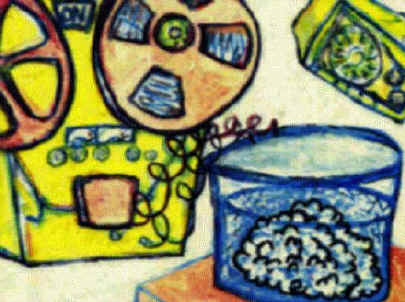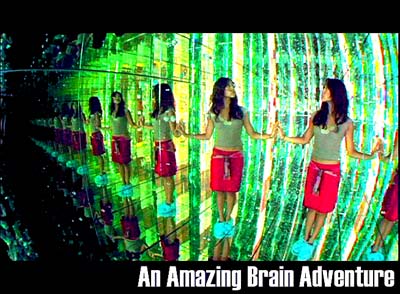Music Technology is...
 A term with a lot of ambiguity, especially if you are attempting to start building a canon. At the same time though, there can be a great deal of personal certainty within the term Music Technology. It can simultaneously refer to: an artist who wants a tool to make art; the art of making new tools; researching new tools; vocational training; and probably much more. Anyone with these interests will share in common some idea of Music Technology, even if they call it something else.
A term with a lot of ambiguity, especially if you are attempting to start building a canon. At the same time though, there can be a great deal of personal certainty within the term Music Technology. It can simultaneously refer to: an artist who wants a tool to make art; the art of making new tools; researching new tools; vocational training; and probably much more. Anyone with these interests will share in common some idea of Music Technology, even if they call it something else.It is actually a good discussion topic to have at this point as I am currently studying in a certificate program in Music Technology. It makes you ask yourself questions and you have to be prepared to have someone else answer similar questions very differently. This is the drama of an inter-disciplinary field, without question. Music itself, leaving aside technology, is inter-disciplinary in the way it is studied: Historians study music, anthropologists study music, mathematicians, critical theorists, philosophers plus many more all study music in there own ways.
In fact, music itself is not only interdisciplinary - it is integrated into existence. It is, dare I say it, almost universally accepted as something "good", in the same way that food might be considered the same; sometimes its bad and sometimes its good but food is a good thing. And it's true because music evokes/provokes different reactions on multiple levels in different people.
Technology further complicates matters. It is disruptive: it emerges to fill gaps, make obsolete and create anew. Any study of technology is going to have problems locating itself because it is trying to be un-locatable. Some ideas may be simply improvements of others - logical extensions - but the best of them will probably be new ideas. Ideas that haven't been thought of yet and thus resist instant labeling.
So whats all this drama about studying it, putting it in a box andlabelingg it? Well, you see, at the moment we are experiencing teething problems. I agreed with Mark Carol when he said that perhaps, as a discipline, Music Technology is so wide and vast that academics have trouble covering the ground. There may be a "lack of depth" but by the same token, that can only be a good thing. It means that there are places to discover, things to hear and do.
If indeed, it is a self regulated field which is defined by the student's desires of music technology, then it is unreasonable to expect theacademicc canon to instantly materialise itself into the text books. It hasn't been written into them yet and with so many people entering this void, it is going to take a long time and some clever, original thinking before we begin to flesh it out.


